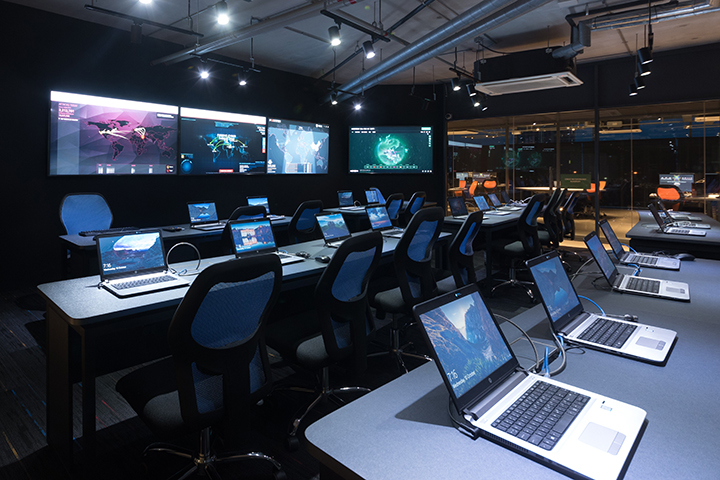Course Details

Dual Degree
APU-DMU Dual Degree Programme
Requirements
Admission Requirements
- 2 Passes in STPM with minimum Grade C (GP 2.0) in any subject with a Credit in Mathematics at SPM.
Note: Candidates who have obtained a Pass in Mathematics, but do not have a Credit Pass in Mathematics at SPM/ IGCSE or equivalent need to take a Pre-Requisite Mathematics module prior to or at the beginning of the study.Strong Mathematics would be an added advantage.
- 2 Passes in A-Level and with a Credit in Mathematics at SPM/ O-Level/ IGCSE or equivalent.
Note: Candidates who have obtained a Pass in Mathematics, but do not have a Credit Pass in Mathematics at SPM/ IGCSE or equivalent need to take a Pre-Requisite Mathematics module prior to or at the beginning of the study.
- 5 Grade B Passes in UEC in any subjects including Mathematics.
Note: Candidates who have obtained a Pass in Mathematics, but do not have a Credit Pass in Mathematics at SPM/ IGCSE or equivalent need to take a Pre-Requisite Mathematics module prior to or at the beginning of the study.
- A pass in Matriculation or Foundation studies with minimum CGPA of 2.0 with a Credit in Mathematics at SPM/ IGCSE/ O-Level or its equivalent.
Note: Candidates who have obtained a Pass in Mathematics, but do not have a Credit Pass in Mathematics at SPM/ IGCSE or equivalent need to take a Pre-Requisite Mathematics module prior to or at the beginning of the study.
- Diploma in Science, Technology or Business studies with a minimum CGPA of 2.50 and with Credit in Mathematics at SPM/ IGCSE or its equivalent, can be admitted subject to rigorous assessment conducted by APU.
Note: Credit transfer of modules into a Bachelor’s Degree may apply based on the fulfilment of credit transfer requirements.
- A Diploma in IT & Computing related areas with a minimum CGPA of 2.50 and fulfilment of requirements for Credit Transfer is subject to approval by the APU Academic Board.
Note: Student with CGPA above 2.0 and below 2.5 may be accepted using rigorous assessment conducted by APU and subject to the approval of the Academic Board.
Note: The above entry requirements may differ for specific programmes based on the latest programme standards published by Malaysian Qualifications Agency (MQA). The qualification and entry requirements for the programmes will be determined based on the "Comparison List of Equivalency of International Qualifications with SPM (O-Levels equivalent) and STPM (A-Levels equivalent)" published by Malaysian Qualifications Agency (MQA).
- IELTS : 5.0
- TOEFL IBT : 40
- Pearson (PTE) : 47
- MUET : Band 3.5
For more information please click HERE
What We Teach
This programme is specifically designed to provide students with:
- Familiarity with a broad range of Information Systems and how they are used.
- An understanding of frameworks and planning techniques for the strategic management of information systems in organisations.
- The ability to critically evaluate and recommend appropriate information system to fulfill the organisation’s needs.
-
Degree Level 1
Students will learn fundamental skills required by every IT professional, and the basic understanding of the underlying computer system through Computer Architecture, operating systems, networking and databases. Some specialised modules will provide them basic knowledge of web development and programming. The modules will also help them develop personal and organisational skills, as well as nurture creativity and innovation.
Common Modules
- Introduction to Databases
- Introduction to Networking
- System Software and Computing Concepts
- Python Programming
- Digital Thinking and Innovation
- Systems Analysis and Design
- Integrated Computer Systems
- Mathematical Concepts for Computing
- Introduction to Security and Forensic Technologies
- Fundamental of Entrepreneurship
Specialised Modules
- Introduction to Information Systems
-
Degree Level 2
A broader range of skills will be learnt, in which you will gain better understanding of the broad range of information technologies, and the specialised skills to apply frameworks and planning techniques for the strategic management of information systems. You will gain solid understanding of the support of business information systems in modern organisational operations. We will further nurture your creativity and innovation as well as independent learning to prepare you for the workplace.
Common Modules
- Programming for Data Analysis
- System Development Methods
- Object Oriented Development with Java
- Innovation Process
- Mobile and Wireless Technology
- Concurrent Programming
- Human Computer Interaction
- Web Applications
- Research Methods for Computing and Technology
Specialised Modules
- Integrated Business Processes with SAP ERP
- Enterprise Systems
- Management Information Systems
-
Internship (16 Weeks)
Students will undertake an Internship/Industrial Training for a minimum period of 16 weeks to prepare them for a smooth transition from the classroom to the working environment.
-
Degree Level 3
Students will make use of their previous studies and industrial experience to extend their familiarity in the field of business information systems and to refine their personal and professional development. Students will move further into the development of business proposals that introduce the development, deployment and business impact of information systems. A final year project requires them to investigate and develop a solution for a real-world problem – they will demonstrate their ability to combine technical knowledge, critical thinking and analytical skills to produce a personal achievement portfolio.
Common Modules
- Project Management
- Advanced Database
- Critical Issues in Managing Information Systems in Organisations
- Cloud Infrastructure and Services
- Venture Building
Specialised Modules
- Developing E-Commerce Applications with XML
- Internet of Things: Concepts & Applications
- Emergent Technology
- Information Systems Development Trends
- Investigations in Business Information Systems
- Business Information Systems Project
-
MQA Compulsory Subjects*
- Appreciation of Ethics and Civilisation (M’sian Students)
- Malay Communication Language (Int’l Students)
- Philosophy and Current Issues
- Workplace Professional Skills
- Integrity and Anti-corruption
- Co-Curriculum
(*All students are required to successfully complete these modules as stipulated by the Malaysian Qualification Agency.)
Note: The specialism will appear only in the academic transcript.

Computing & Technology
Collaborative Industrial Partners
Industry-academia collaboration is a strategic necessity to ensure the quality and relevance of our programmes. Through our Industry-Academia Collaboration (IAC) model, we design programmes in collaboration with inputs from the industry, that are also aligned with the government’s initiatives to address the shortage of skilled talents. Over the years, APU has established collaborations with key industry players worldwide; we have been delivering highly-relevant programmes that help us develop skilled and professional graduates for the workforce.
Facilities at APU
The APU Centre Point & Atrium serves as a melting pot of cultures from all over the world. Here, cultural activities are organised regularly at the campus, fostering long-lasting intercultural relationships among APU students, who come from over 130 countries.
Ready, Set, Go.
Whether you are locals or traveling here, we have the options for you to pursue your dreams.
RM31,700
Year 1
RM32,800
Year 2
RM33,800
Year 3
RM98,300
Total for Malaysian
RM32,000
(USD8,000)
Year 1
RM33,100
(USD8,275)
Year 2
RM34,400
(USD8,600)
Year 3
RM99,500
(USD24,875)
Total for International
Programme code : (R2/0611/6/0038)(08/25)(A6210)
All information is correct at the time of publication, but is subject to change in the interest of continuing improvement.

APU Open Day
Learn More
Campus Facilities
Learn MoreEnglish Language Study
Korean Language
U-Start Programme
Want to know more ?
Let’s Connect